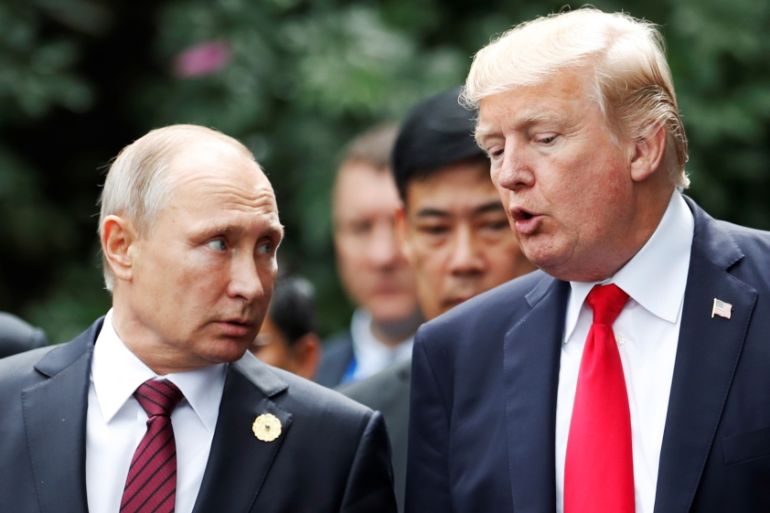US and Russia on the verge of media Cold War

Russia’s parliament warned that some United States and other foreign media could be declared “foreign agents” and obliged to regularly declare full details of their funding, finances and staffing.
Vyacheslav Volodin, speaker of the State Duma, said on Friday that parliament could back legislation as early as next week, in response to what legislators view as US pressure on Russian media.
Keep reading
list of 4 itemsNPR editor resigns after accusing US outlet of liberal bias
Lawmakers brawl as Georgian Parliament considers ‘foreign agent’ bill
Journalist loses foot after being badly wounded in Israeli attack in Gaza
“Possible restrictions will be the same as those taken by the United States,” Interfax news agency quoted him as saying.
Russian legislators said the move was retaliation for a demand by the US Department of Justice that Kremlin-backed TV station RT register in the US as a “foreign agent”, something Moscow has said it regards as an unfriendly act.
Volodin said some US media in Russia were trying to turn US public opinion against Moscow.
“We understand that it’s essential to protect the interests of our citizens and the country, and we will do this in the same way as the country which lays claim to be the gold standard and mentor, and which is constantly talking about freedom.”
The US action against RT was taken after US intelligence agencies accused Russia of trying to interfere in last year’s US presidential election to help President Donald Trump win, something Moscow has denied.
Russian election
Russia faces a presidential election next March. Vladimir Putin is widely expected to stand again and to win. He remains broadly popular though critics accuse him of suppressing dissent, not least by tight control of domestic media.
legislators will conduct a first reading of the new restrictions on November 15 and try to complete approval in two further readings by November 19.
US and any other foreign media that fall under the new restrictions could have to regularly disclose to Russian authorities full details of their funding, finances and staffing, and might be obliged to say on their social media profiles and internet sites visible in Russia that they are “foreign agents”.
The Duma earlier this year launched an investigation into whether CNN, Voice of America, Radio Liberty and “other American media” were complying with Russian law.
US government-sponsored Radio Free Europe/Radio Liberty (RFE/RL) said last month Moscow had threatened to brand their Russian language service projects “foreign agents” in retaliation for US pressure on RT.
On November 10, Joanna Levison, RFE’s director of media and public affairs, declined to speculate about how the latest move might affect the broadcaster, but said RFE had “every intention” of continuing its journalistic work in Russia.
“… While RT is able to work and distribute its content freely in the US, RFE/RL has lost all of its broadcast affiliates in Russia due to administrative pressure, it has no access to cable TV, and its reporters are beaten and harassed,” Levison said in an emailed comment.
Russia said last month it had dropped accusations against CNN International of violating Russian media law and that the US channel could continue broadcasting in Russia.
San Francisco-based social network Twitter has also angered Russian authorities, when it accused RT and the Sputnik news outlet of interfering in the 2016 US election and banned them from buying ads on its network.